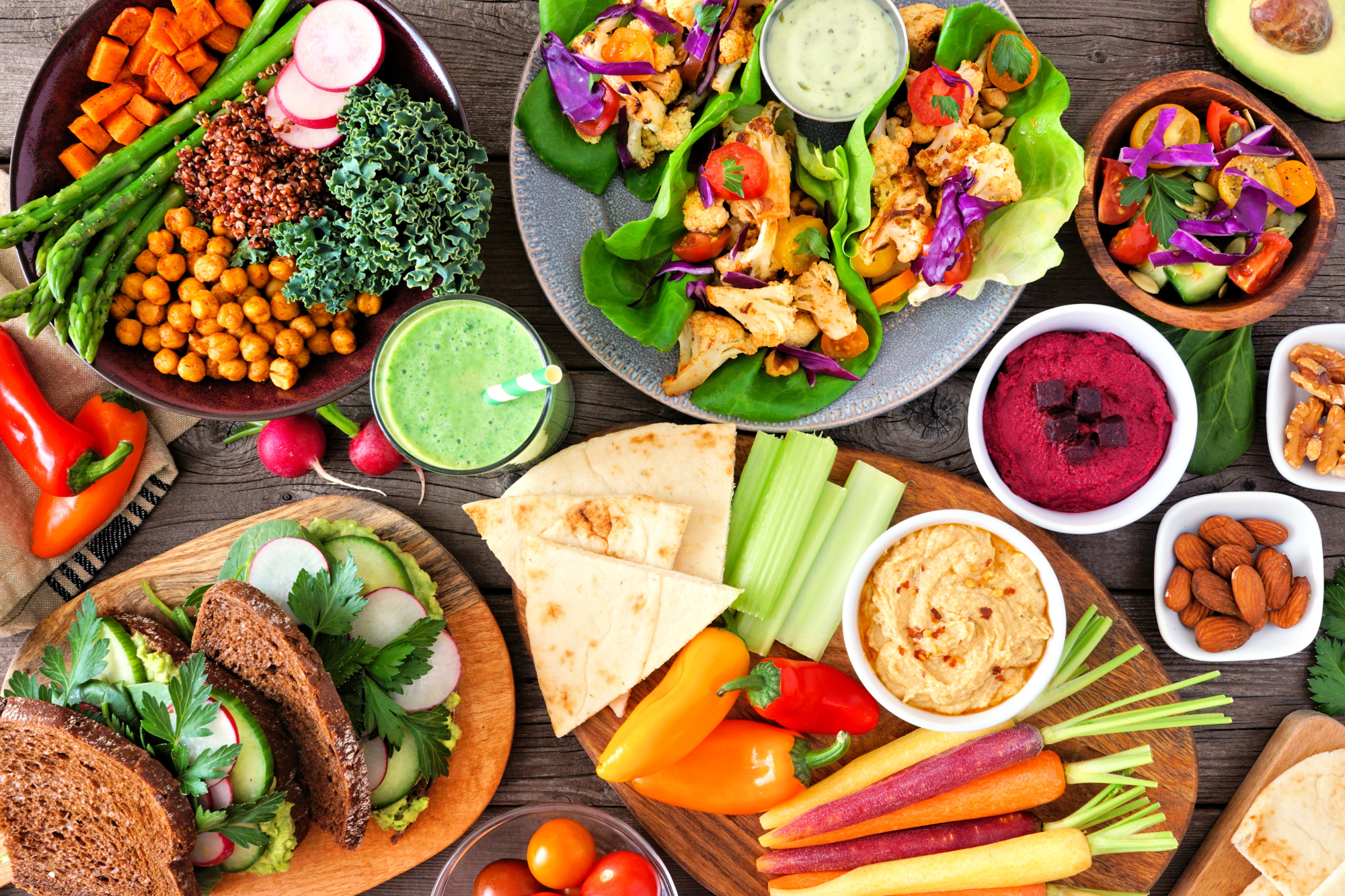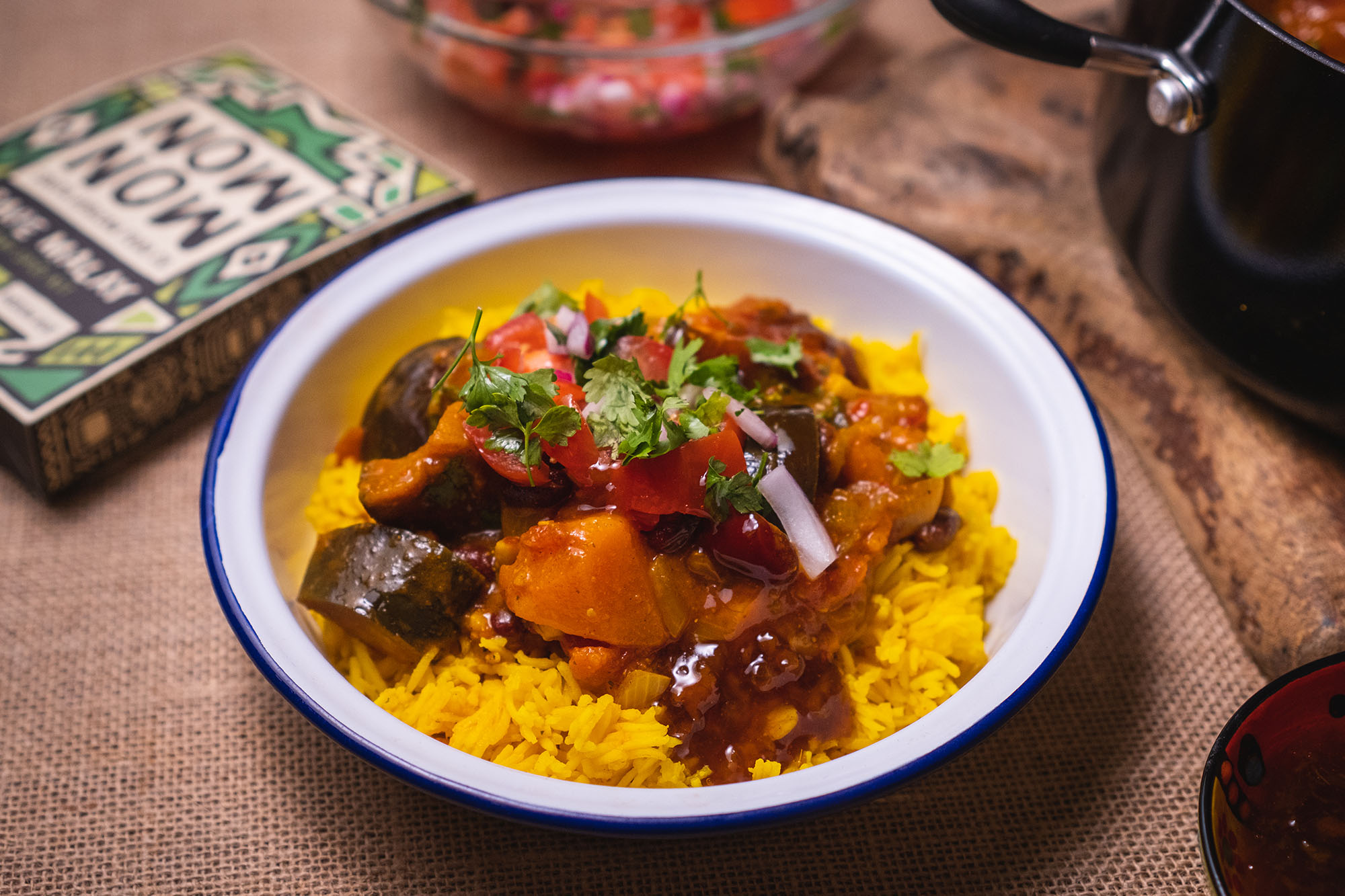Report draws support from inside the UN Environment Programme
There is a fundamental and often-overlooked connection between pandemics such as the current COVID-19 crisis and our animal-based food system, says a major new report published today.
The Food & Pandemics Report, produced by ProVeg International, identifies the eating and farming of animals as the single most risky human behaviour in relation to pandemics, and calls for urgent changes to the global food system in order to prevent future outbreaks. The report has drawn support from inside the UN Environment Programme (UNEP).
Dr Musonda Mumba, Chief of the Terrestrial Ecosystems Unit of the UNEP, said: “The ProVeg report clearly demonstrates the connection between industrial animal production and the increased risk of pandemics. Never before have so many opportunities existed for pathogens to jump from wild and domestic animals to people.”
The report finds that our dietary choices and the global food system are the key drivers of zoonoses (diseases such as COVID-19, which are transmitted from non-human animals to humans) in three clear and mutually reinforcing ways:
1) Through the destruction of animals’ natural habitats and loss of biodiversity, driven largely by animal agriculture.
2) Through the use of wild animals as food.
3) Through the use of farmed animals as food in intensified animal agriculture.
About 75% of all emerging infectious diseases are zoonotic in nature. Zoonotic diseases, which include SARS, MERS, Ebola, rabies, and certain forms of influenza, are responsible for an estimated 2.5 billion cases of illness and 2.7 million deaths worldwide, every year.
Although the origins of such outbreaks tend to be associated with wild animals, as is assumed with COVID-19, pathogens also jump from wild animals to farmed animals before being transmitted to humans – as was the case with recent pandemic threats such as avian flu and swine flu.
Jens Tuider, International Director of ProVeg International, and lead author of the report, said: “The recipe for disaster is surprisingly simple: one animal, one mutation, one human, and a single point of contact. We don’t yet know the full story about the emergence of COVID-19, but there is no uncertainty regarding swine flu and avian flu: those viruses evolved on factory farms, where conditions are perfect for the evolution and transmission of viruses, as well as for the development of antimicrobial resistance. Factory farms are perfect breeding grounds for future pandemics.
“There are so many reasons to move away from intensively farming animals – to tackle the climate crisis, to protect the environment, to combat antibiotic resistance, to protect our health, and for the welfare of animals. But mitigating the risk of the next pandemic, which could have an even more devastating impact than COVID-19, is perhaps the most persuasive reason of all. Science clearly supports this, but is there enough political will?”
The report also shines a light on climate change, which increases the risk of future pandemics, and antimicrobial resistance, which exacerbates their impact. Both are driven by our animal-based food system, the demand for which continues to grow rapidly. The report also touches on COVID-19’s impact on slaughterhouse workers.
Dr Mumba, in response to the recent COVID-19 outbreaks at meat-processing plants around the world, which have seen closures in the UK, the US and Germany, added: “We have also seen in the last few months how industrial animal-production spaces have been spaces for the spread of COVID-19. Clearly this provides another opportunity for a rethink of our food systems as they relate to pandemics.”
The Food & Pandemics Report follows a number of reports with similar findings published in recent weeks by WWF, the University of Cambridge, and the UN Environment Programme. There is a growing consensus among NGOs, academic institutions, and the scientific community that the global food system needs to change if we are to prevent future pandemics.
Download the report
ENDS
For more information, or to ARRANGE AN INTERVIEW, please contact:
Jimmy Pierson, Global PR Manager, ProVeg International
[email protected]
+44 7931 819 508
Notes to editors
Additional quotes from medical professionals
Dr Laura Jane Smith, Respiratory and Internal Medicine Consultant at King’s College Hospital, said: “Sadly, as explained in stark terms in the ProVeg Food and Pandemics report, this is unlikely to be the last pandemic this generation has to face. Right now, the perfect conditions exist for another virus to spillover from animals to humans in multiple places all over the world. These conditions are created by our animal-based food system.
“A future pandemic could be even worse as it may be more infectious, or more deadly. We must do everything possible to prevent this happening. And we can act. We have the power to drastically reduce the chance of future pandemics, and at the same time reduce illness in our population, reduce air pollution, and solve world hunger.”
Professor Shireen Kassam, Consultant Haematologist and Honorary Senior Lecturer at King’s College Hospital, said: “Factory farm practices necessitate the overuse of antibiotics, which is contributing to the rise of antibiotic-resistant infections in humans. If allowed to continue, we risk entering a post-antibiotic era, an outcome too terrible to contemplate.
“The new Food & Pandemics Report by ProVeg highlights the intrinsic links between large scale animal agriculture and pandemics. We can and must make radical changes to our food system while we still have the chance. A shift towards more plant-based diets will not only reduce the risk of future pandemics, but will radically transform human health.”
Growing demand for animal protein driving pandemics
Rising global demand for meat, eggs, dairy, and seafood is driving the rapid growth and intensification of animal agriculture – with chicken and pigs at the centre of this development.
Globally, more than 75 billion land animals are slaughtered for food every year. This is about 10 times the number of humans living on this planet. At any time, there are more than 30 billion farmed animals on earth, the vast majority (82%) of them poultry such as chickens, ducks, and turkeys. Today, livestock accounts for 60% of all mammal biomass, and poultry for 70% of bird biomass, with these figures continuing to grow. The global production of meat, eggs, dairy, and seafood from intensive production facilities is forecast to increase by 15% by 2028.
Antimicrobial resistance and pandemics
Globally, more than 70% of antibiotics are used in intensive animal farming. This usage dramatically decreases the efficacy of antibiotics intended for humans.
Antibiotics’ declining efficacy in treating bacterial pathogens aggravates the overall health risk for humans and increases the burden on healthcare systems, particularly during a pandemic. They are essential in fighting bacterial infections which often accompany a primary viral infection. However, with more and more strains of antimicrobial-resistant bacteria emerging, antimicrobial resistance can further escalate an epidemic or a pandemic. In the case of influenza, for instance, bacterial infections are thought to contribute to up to 50% of total deaths. During the 2009 swine influenza pandemic, cases of secondary bacterial infections increased, causing up to 55% of the total deaths.
Climate change and pandemics
Climate change contributes to the increased transmission of pathogens from host animals to humans. Higher average temperatures can shift the habitats of both animals and pathogens, which spurs imbalances in ecosystems and loss of biodiversity, resulting in higher risks of new infectious diseases emerging.
There is no doubt that climate change is the result of human activities. One of the main drivers of climate change is animal agriculture, which accounts for about 16% of global greenhouse-gas emissions, and which is also a major contributor to environmental degradation.
__________
About ProVeg International
ProVeg International is a global food awareness organisation working to transform the global food system by replacing conventional animal-based products with plant-based and cultivated alternatives.
ProVeg works with international decision-making bodies, governments, food producers, investors, the media, and the general public to help the world transition to a society and economy that are less dependent on animal agriculture and more sustainable for humans, animals, and the planet.
ProVeg has permanent observer status with UNFCCC, is accredited for UNEA, and has received the United Nations’ Momentum for Change Award.
__________












